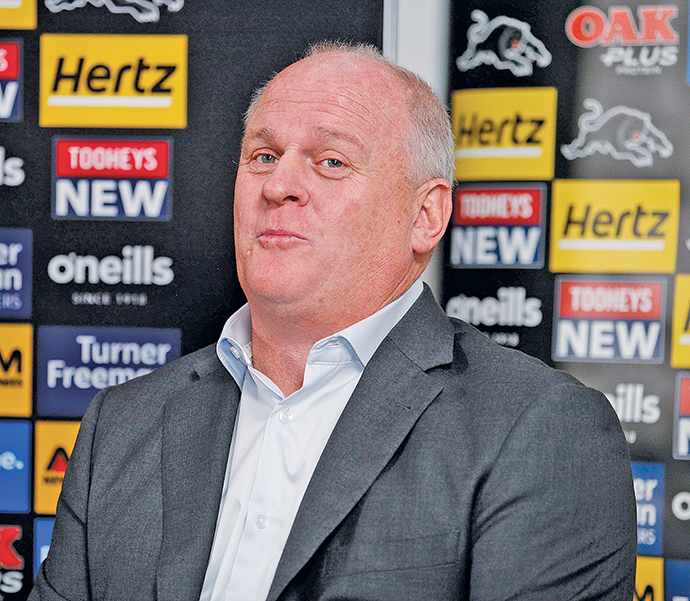
A former Penrith Panthers player who, for many years, never had management was approached by a high-profile player manager before his last contract was set to expire.
“Let me handle your negotiations and I promise I’ll set you and your family up for life,” the manager said.
He’s now playing for another NRL side on huge money after signing the biggest contract of his short career.
His monetary future secure… forever.
Any chance Penrith had of re-signing him… gone!
Not because Panthers management don’t know how to deal with managers or that the player was greedy, but it’s hard to think straight when you’ve got someone in your ear constantly talking about how much you’re really worth and how, with that extra money, you’ll be able to look after not only yourself but your family as well.
Bit hard to walk away from that kind of security, especially if it can help your family who have spent their whole life helping you.
More often than not, when a player signs a huge contract, they may go out and buy themselves a little present, but most of the time the money goes towards either securing their own family’s or their parents’ future in some way.
The career of an average football player is not a long one.
Players know this and so do their managers.

It’s easy to blame the club when a player doesn’t re-sign with them but chooses to go to another club for more cash.
Let’s look at Sunia Turuva’s decision last week to join the Tigers for more money than Penrith could offer as an example.
My first reaction was… “C’mon Panthers, give him an extra $50,000 a season… we’ve just lost Fish… he’s worth it!”
When Penrith wouldn’t increase their offer I was perplexed! Even a bit angry.
Then I decided to look at the situation from the club’s perspective and it made perfect sense.
Panthers Chief Executive Officer Matt Cameron also has a family to look after. It’s made up of hundreds of players under his watch from 14-year-old juniors to NRL megastar Nathan Cleary.
Cameron’s family also extends to all the other staff who work in the Penrith system. It includes Panthers supporters and sponsors, which all demand a certain level of success every year.
If players’ salaries aren’t juggled properly then the whole house of cards will fall and the long-term success of the club will be compromised.
Cameron and his team have to be extremely disciplined with the salary cap. They only have a certain amount of money to spend for each position and that’s it. No ifs ands or buts.
Player managers know this and exploit it.
After all they don’t operate under a salary cap and therein lies their real power.
For them the more they can make for their client – the better.
To them, the sky’s the limit.
To Matt Cameron his limit is $11.4 million, the total amount he has to spend on his Top 30 squad.
That’s the salary cap for 2025.
And he has a lot of mouths to feed under that figure.
I don’t know how he does it, but he does it well.

Peter Lang
Peter Lang is an experienced sports writer, who has been covering rugby league for several decades. He first wrote Lang on League for the Weekender in the 1990s, and worked for Panthers on its famous Panthers Magazine for several years.
